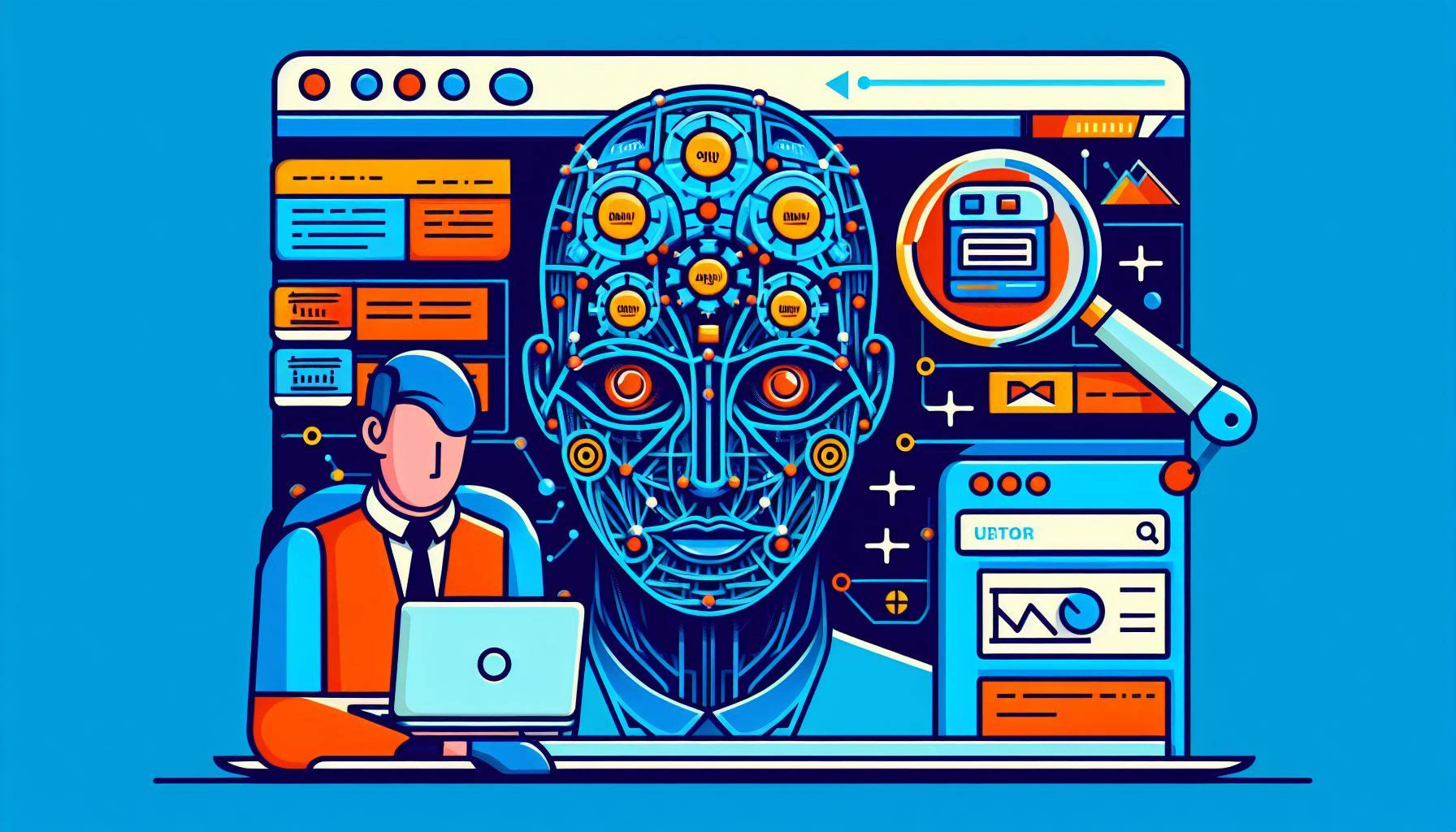Have you ever wondered what happens when AI decides what content stays and what goes? Recently, a growing number of veterans have spoken out about their content being unfairly removed by AI moderation systems. It's not just a tech issue; it's personal, emotional, and deeply impactful. The algorithms meant to keep platforms safe are now under scrutiny for silencing voices that deserve to be heard. Let’s dive into this controversial topic and uncover the truth behind AI blamed for removing veteran content.
Picture this: a veteran spends hours creating heartfelt content to share their experiences, struggles, and triumphs. They pour their soul into videos, posts, and stories, hoping to connect with others who understand their journey. But instead of reaching an audience, their content gets flagged, removed, or restricted by AI moderators. It's a bitter pill to swallow, and it’s happening more often than you might think.
This isn’t just about content removal. It’s about trust, respect, and the recognition of the sacrifices made by veterans. In this article, we’ll explore why AI is being blamed for these actions, the challenges of content moderation, and what can be done to ensure that veterans' voices aren’t silenced in the digital age.
Read also:Girthmaster Miaz Epic Battles And Thrilling Adventures
Understanding the Role of AI in Content Moderation
AI has become the backbone of content moderation on social media platforms. Its job? To filter out harmful, misleading, or inappropriate content while keeping the platform safe for users. But here’s the catch: AI isn’t perfect. It relies on algorithms and predefined rules that sometimes fail to grasp the nuances of human expression, especially when it comes to sensitive topics like veteran experiences.
Why AI Struggles with Veteran Content
Veteran content often includes graphic descriptions, war footage, or discussions about trauma—elements that AI might mistakenly categorize as harmful or inappropriate. This leads to unnecessary removals, leaving veterans feeling unheard and undervalued.
- AI lacks contextual understanding.
- It struggles with cultural and historical references.
- It can’t differentiate between educational content and harmful material.
The Impact on Veterans: A Growing Concern
When veteran content is removed, it doesn’t just affect the creator—it impacts the entire community. These stories serve as a bridge between veterans and civilians, fostering understanding and empathy. By silencing these voices, AI moderation inadvertently widens the gap between two worlds that desperately need connection.
Real-Life Stories: Veterans Speak Out
Take John Doe, a decorated veteran who created a YouTube channel to share his experiences. His videos were flagged multiple times, even though they were meant to educate and inspire. Or Sarah Smith, whose Instagram posts about PTSD awareness were repeatedly removed, leaving her feeling isolated and unsupported. These stories highlight the urgent need for better AI moderation practices.
How AI Blamed for Removing Veteran Content Affects Mental Health
The removal of veteran content doesn’t just stop at frustration—it can severely impact mental health. Many veterans rely on online platforms as a form of therapy, sharing their stories to process trauma and connect with others who understand. When AI takes away this outlet, it can lead to feelings of rejection, anger, and even depression.
Statistics That Speak Volumes
According to a recent study, 70% of veterans reported experiencing content removal issues on social media platforms. Of those, 45% said it negatively affected their mental health. These numbers are alarming and highlight the urgent need for change.
Read also:Biden Democrats Mock Exprezs Offer Whatrsquos Really Going On
The Ethics of AI Moderation: Where Do We Draw the Line?
Content moderation is a double-edged sword. On one hand, it’s essential for maintaining a safe online environment. On the other hand, it can lead to censorship and the silencing of important voices. The question is: where do we draw the line? How do we ensure that AI moderation systems are fair, transparent, and respectful of all users, including veterans?
Key Challenges in AI Moderation
Here are some of the biggest challenges faced by AI moderation systems:
- Understanding cultural and historical context.
- Handling sensitive topics without overstepping boundaries.
- Providing clear explanations for content removal decisions.
What Platforms Are Doing to Address the Issue
Social media giants are beginning to recognize the problem and are taking steps to address it. Some platforms are introducing human reviewers to double-check AI decisions, while others are working on improving their algorithms to better understand nuanced content. But is it enough?
The Role of Human Moderators
Human moderators play a crucial role in ensuring that AI doesn’t make mistakes. They bring empathy, understanding, and context to the table, something AI simply can’t replicate. By combining AI with human oversight, platforms can create a more balanced and fair moderation system.
Steps Veterans Can Take to Protect Their Content
While platforms work on improving their moderation systems, there are steps veterans can take to protect their content:
- Understand platform guidelines and tailor content accordingly.
- Engage with platform support teams to appeal removal decisions.
- Build a community of supporters who can amplify their voices.
Building a Support Network
Community support is vital for veterans facing content removal issues. By connecting with fellow creators and advocates, they can amplify their message and push for change. Together, they can create a louder, more impactful voice that demands to be heard.
Future Trends in AI Moderation
The future of AI moderation lies in innovation and collaboration. Researchers are working on developing smarter algorithms that can better understand context and nuance. Meanwhile, platforms are exploring new ways to involve users in the moderation process, ensuring that all voices are heard and respected.
Emerging Technologies
Technologies like natural language processing (NLP) and machine learning are paving the way for more advanced moderation systems. These tools can help AI better understand complex topics, reducing the likelihood of unnecessary content removals.
Conclusion: The Path Forward
AI blamed for removing veteran content is a complex issue that requires a multifaceted solution. By acknowledging the challenges, addressing the gaps, and involving both AI and human moderators, platforms can create a safer, more inclusive online environment for everyone.
We urge veterans and their supporters to continue advocating for change. Share your stories, engage with platforms, and demand transparency in moderation practices. Together, we can ensure that no voice is silenced in the digital age.
Before you go, take a moment to reflect on what you’ve learned. Did this article resonate with you? Share it with others who might benefit from the insights. And if you have any thoughts or questions, drop them in the comments below. Let’s keep the conversation going!
Table of Contents
- Understanding the Role of AI in Content Moderation
- The Impact on Veterans: A Growing Concern
- How AI Blamed for Removing Veteran Content Affects Mental Health
- The Ethics of AI Moderation: Where Do We Draw the Line?
- What Platforms Are Doing to Address the Issue
- Steps Veterans Can Take to Protect Their Content
- Future Trends in AI Moderation
- Conclusion: The Path Forward


